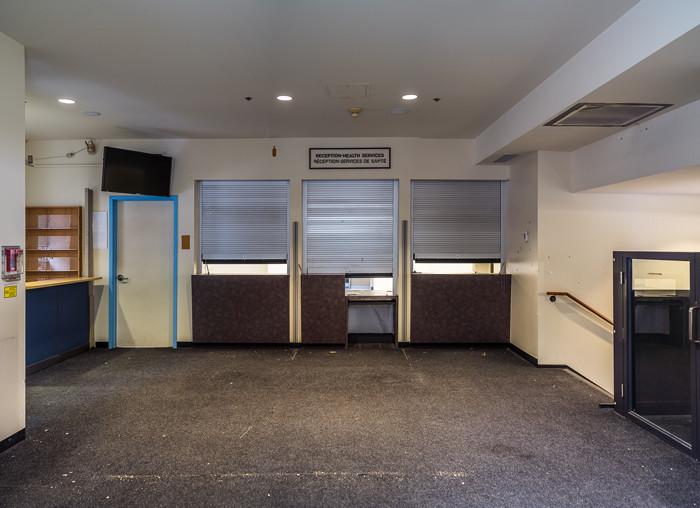The Student Health Clinic closed Oct. 9-12 and relocated to Brown Building Room 3100, where services resumed on Oct. 15. Extensive renovations are now underway to transform the former clinic area into the Rossy Student Wellness Hub, which will supplement the clinic with a common area and have space for outreach and peer support. Contractors plan to finish renovating ‘The Hub’ by late Spring 2019 in order for new health and wellness programs to launch in Fall 2019.
On Oct. 2, McGill’s Media Relations Office emailed students about the clinic closure. Although the clinic did not book any doctors or nurses for the week, it rescheduled dietician appointments and directed students with ongoing critical needs to nurses, who contacted the patients directly. The clinic closure disproportionately affected international students and others who are not eligible for Régie de l’assurance maladie du Québec (RAMQ), Quebec’s provincial health insurance, as doctors unaffiliated with Student Services charge high rates that patients have to pay out of pocket.
Owain Guinn, U2 Arts, is an international student with Type I diabetes and was unable to contact the clinic during its closure.
“As an international student with a serious medical condition, I need the health clinic’s help being put in touch with specialists in Montreal,” Guinn wrote in a message to The McGill Tribune. “After getting a referral from the [student] clinic, I did not get a call from a hospital to schedule my appointment. I needed to go back to the clinic to ask for more help, but was unable to because of the move.”
The McGill administration planned to install The Hub between Summer 2018 and Dec. 2018 but did not select a contractor until Sept. 13. Student Services confirmed the clinic closure and relocation dates internally on Sept. 18. According to Dr. Hashana Perera, director of the Student Health Services (SHS), the administration was forced to push back construction dates due to delays beyond its control.
“[The Hub] is a very large construction project with many moving parts and it depends on inputs from many different partners, both internal and external,” Perera wrote in an email to the Tribune. “However, we made sure that construction wouldn’t start during our busiest period, [which is] back to school until end of September, to minimize impact.”
The Health and Wellness Committee, comprised of student leaders, faculty, and staff, developed the action plan outlined in the The McGill Health and Wellness Report. Key upgrades to the system include ‘Access Clinicians’ to provide same day care and triage, a ‘virtual hub’ for booking appointments online, and a common area where students can relax while waiting for their appointments. Student Services also seeks to increase medical personnel in the new clinic. Martine Gauthier, executive director of Student Services, is confident that The Hub’s emphasis on access will simplify healthcare services for students.
“We’re […] not only connecting students to the right care at the right time but also monitoring and adapting care to get results,” Gauthier wrote to in an email to The Tribune. “We are currently working on tools to help students find health and wellness resources that are covered by their particular insurance plans as part of the Rossy Student Wellness Hub [initiative].”
The Medical Students’ Society of McGill (MSS) hopes that the university can continue to provide services for students ineligible for RAMQ. André Lametti, Medicine senator for SSMU, expects shorter wait times and more comprehensive service coverage from the new clinic.
“We’ll see if there is an improvement [with the new clinic], but it is impossible to judge its success solely based on the plan,” Lametti said. “[The MSS hopes] that the clinic gives access that the students need in a timely fashion, especially for [those] who don’t have [insurance].”









